Abstract
In order to characterise human interdigestive cyclical motor activity, and its interruption by food, jejunal pressure changes in healthy volunteers were recorded continuously for 24 hours, using an ingested pressure-sensitive radiotelemetry capsule tethered at the duodenojejunal flexure. In 20 studies, the subjects fasted throughout; in another 20 studies they received a single standard meal. Using this technique, fasting motor complexes were easily detected. There was considerable variation in interdigestive cycle duration and in the interruption caused by food. The data were not normally distributed. The study indicates that any descriptions of 'atypical' jejunal motility patterns must take into account the wide variations seen in health, before they can be regarded as representing dysfunction or disease.
Full text
PDF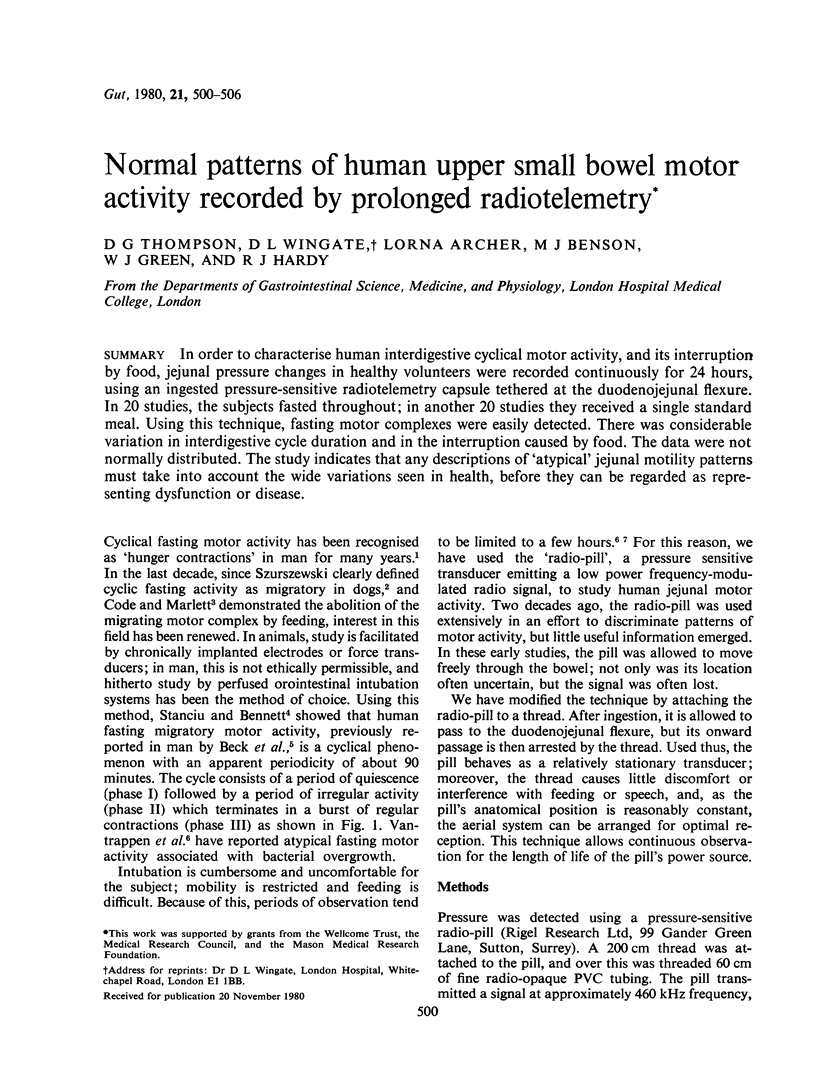
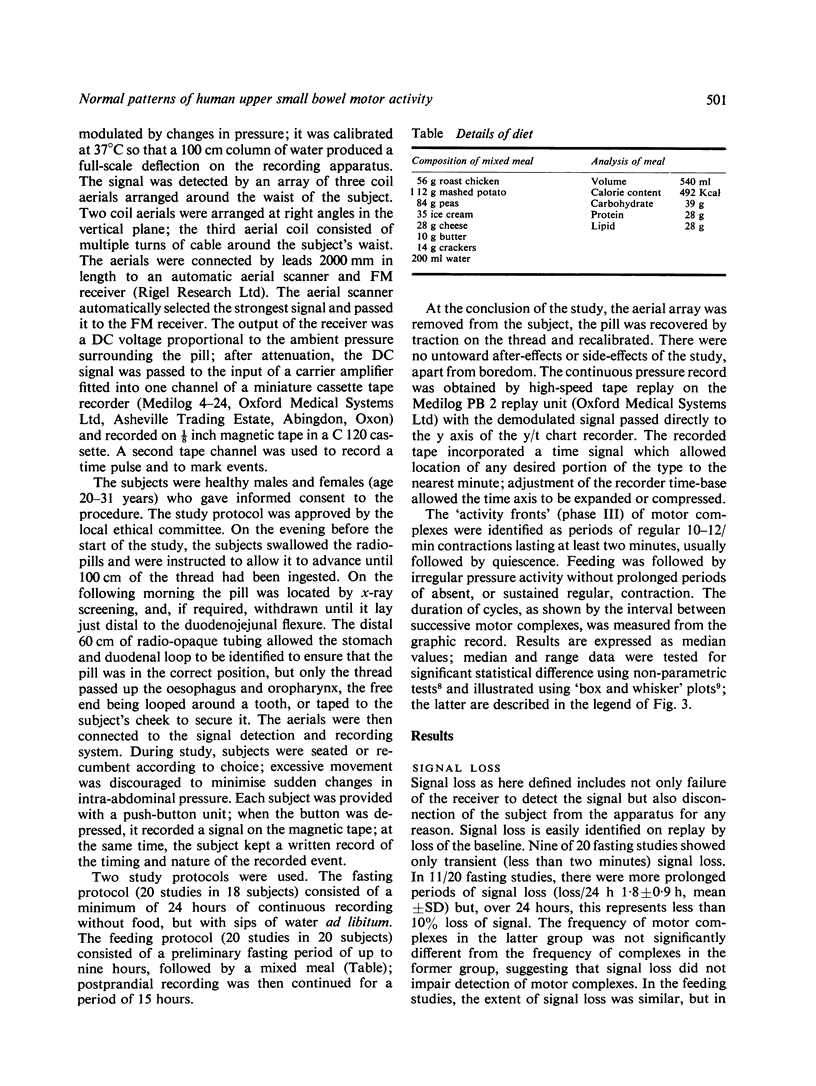


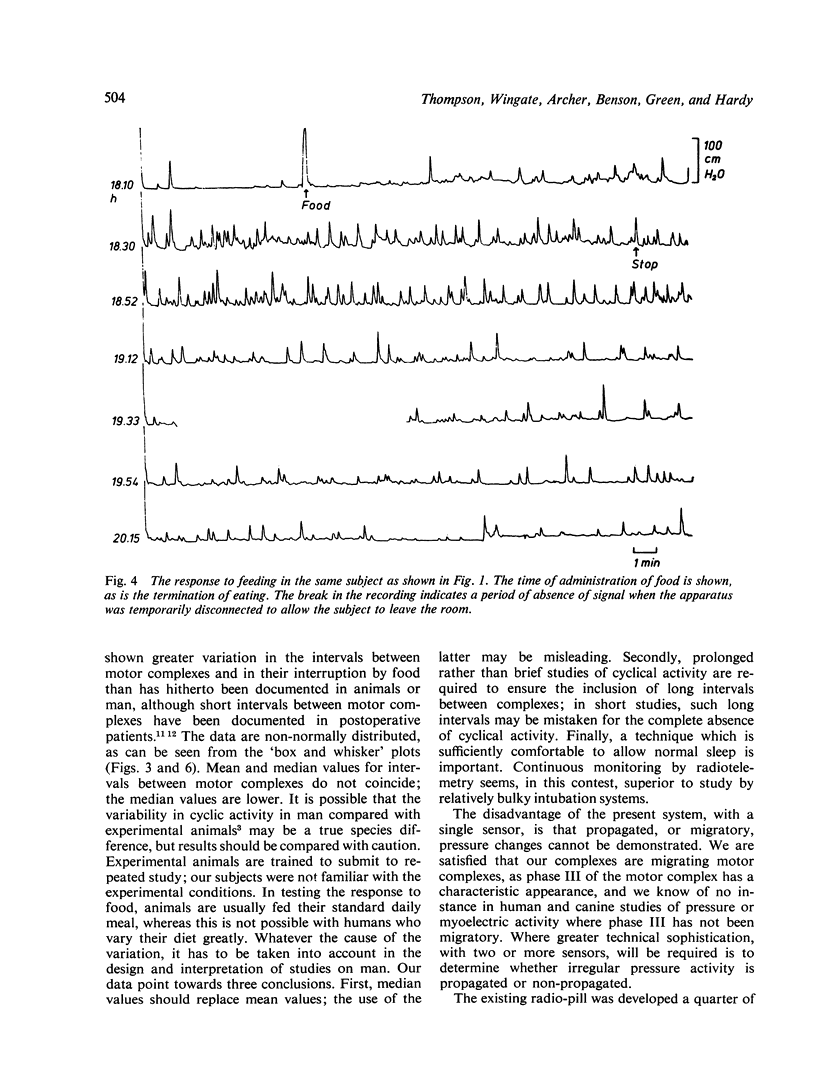
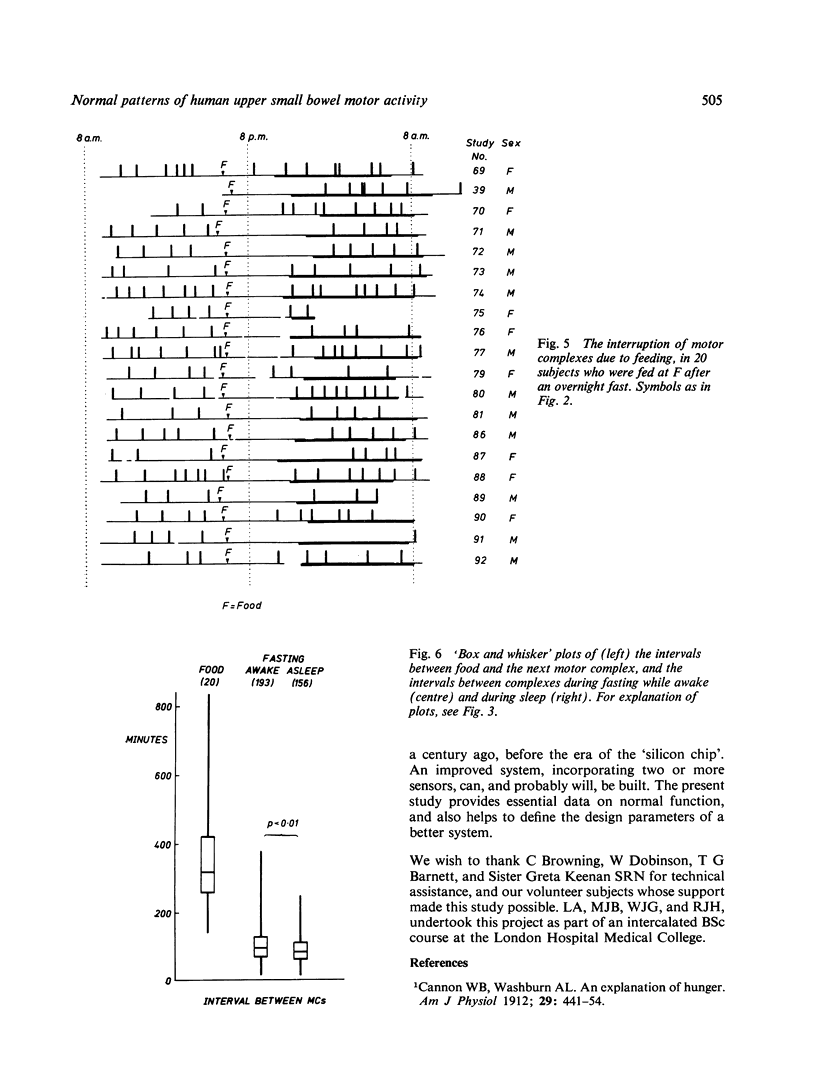
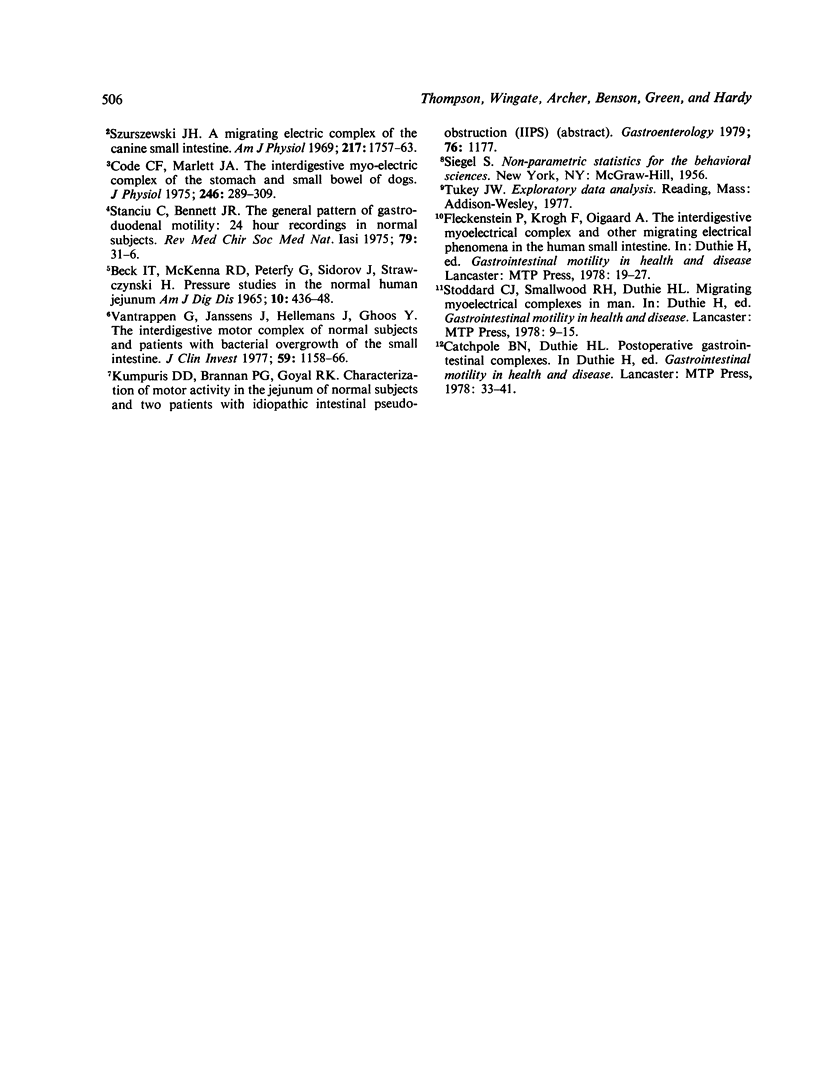
Selected References
These references are in PubMed. This may not be the complete list of references from this article.
- Code C. F., Marlett J. A. The interdigestive myo-electric complex of the stomach and small bowel of dogs. J Physiol. 1975 Mar;246(2):289–309. doi: 10.1113/jphysiol.1975.sp010891. [DOI] [PMC free article] [PubMed] [Google Scholar]
- Stanciu C., Bennett J. R. The general pattern of gastro-duodenal motility: 24 hour recordings in normal subjects. Rev Med Chir Soc Med Nat Iasi. 1975 Jan-Mar;79(1):31–36. [PubMed] [Google Scholar]
- Szurszewski J. H. A migrating electric complex of canine small intestine. Am J Physiol. 1969 Dec;217(6):1757–1763. doi: 10.1152/ajplegacy.1969.217.6.1757. [DOI] [PubMed] [Google Scholar]
- Vantrappen G., Janssens J., Hellemans J., Ghoos Y. The interdigestive motor complex of normal subjects and patients with bacterial overgrowth of the small intestine. J Clin Invest. 1977 Jun;59(6):1158–1166. doi: 10.1172/JCI108740. [DOI] [PMC free article] [PubMed] [Google Scholar]


